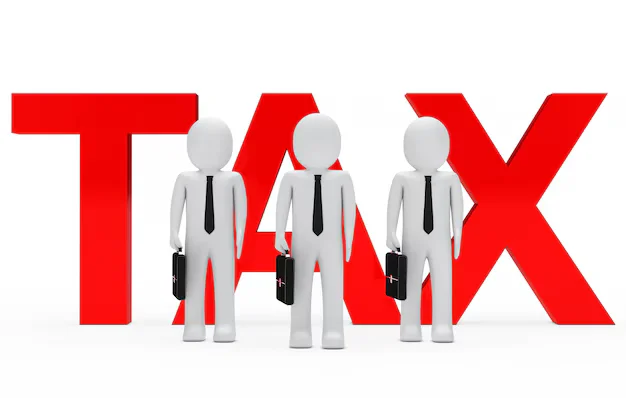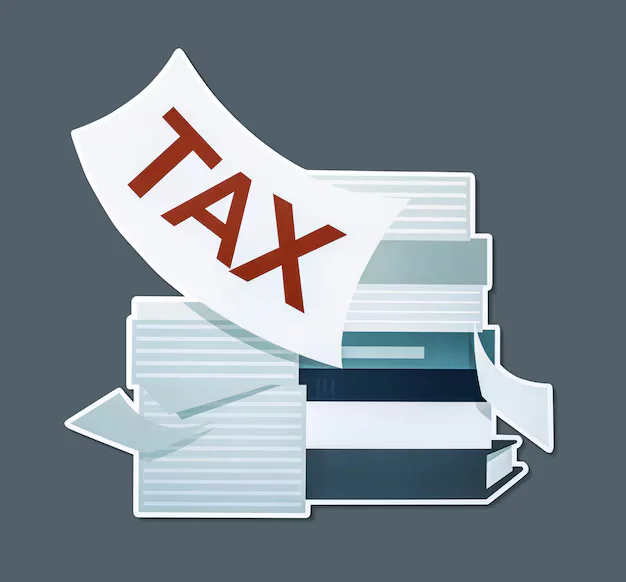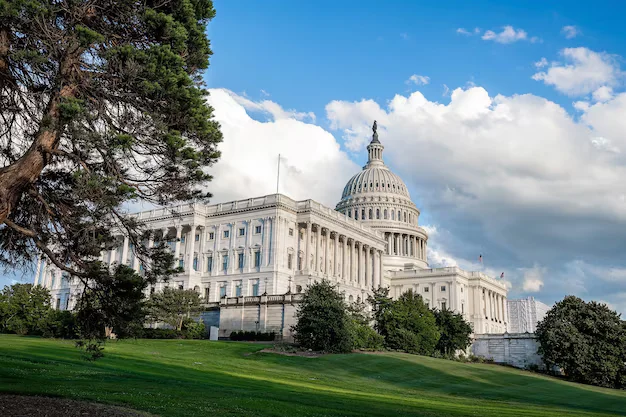States with no income tax: Updated list by PayStubsNow
Living in income tax-free states is a common strategy for getting a lower tax bill and for reducing your personal income tax and federal income tax bills, especially when levying taxes can be higher in other states. As a result, there is a strong desire to move to states with better affordability, especially among low-income earners.
However, income tax-free states do not guarantee lower living costs, despite the absence of personal income taxes and potentially lower local sales taxes. For instance, in 2021, Alaska was reported by the Washington State Department to have the lowest overall tax burden, including personal income tax rates and corporate income taxes, in the United States.
But the low tax burden did not mitigate the high cost of living, making it among the least affordable states to live in the US with notable highest property taxes. This article will tell you what income taxes are and how they work. Also, you will get to understand what it means to live in states with no income tax and gain up-to-date information from our PayStubsNow experts.
How income tax works and what it means for states with no income tax

Governments generate revenue from income tax means such as personal income tax, corporate income taxes, and retirement distributions to fund public services, social security, and other government obligations. Therefore, income taxes refer to the amount levied by the government on income generated by individuals and businesses within their area of jurisdiction.
As a result, it is up to governments to decide on their tax system. The United States operates a progressive tax system. Essentially, the high-income earners pay more tax than the low-income earners.
Also, under the guidance of the Washington State Department, it is the responsibility of the IRS to enforce income tax laws, including regulations on individual income tax and corporate state income taxes, and collect taxes across the US.
Personal income tax is a government-imposed obligation on dividend income, interest income, and business profits earned by individuals and enterprises. It's one of the primary sources of revenue for governments at various levels, including federal income tax, state income tax, and local taxes, providing essential tax benefits. The way income tax works can vary depending on the jurisdiction, but here's a general overview:
Taxable Income Calculation:
Taxable income is the basis for calculating income tax. It's typically calculated by subtracting certain deductions and exemptions from an individual's total income. These deductions might include items like business profits, student loan interest, mortgage interest, and other factors impacting your average property tax rate.
Tax Brackets:
Income tax is often structured in a progressive manner, with different tax rates applied to different income levels. Tax brackets define the income ranges that correspond to specific tax rates. As your income increases, you move into higher tax brackets, and a higher percentage of your income is subject to taxation.
Marginal Tax Rate:
The marginal tax rate is the tax rate applied to the last dollar of income earned. This rate might be higher than your effective tax rate, which is the overall percentage of your income paid in taxes. For example, if you're in the 25% tax bracket, it means the last dollar you earn is taxed at 25%, but your effective tax rate will be lower.
Tax Credits and Deductions:
Tax credits and tax deductions can reduce your taxable income or directly reduce the amount of tax you owe. Tax benefits, such as credits, are often more valuable than deductions because they directly reduce tax liability, influencing your income tax rate and local income tax calculations.
Withholding:
For most wage earners, income tax is withheld from their paychecks by their employers. This withholding, affected by washington taxes, is an estimate of the federal income tax and state income tax you'll owe for the year, based on your income and the information you provide on your Form W-4. At the conclusion of the tax season, you reconcile your actual tax liability with the amount withheld, which can affect your retirement income or wage income, leading to either a refund or additional taxes due.
Regarding states with no income tax

Several U.S. states, such as those in Dakota Tennessee Texas Washington, do not impose a state income tax on individuals' wage income or other earned income. As of my last knowledge update in September 2021, these states are Alaska, Florida, Nevada, South Dakota, Texas, Washington, and Wyoming. New Hampshire and Tennessee do not tax earned income but do tax interest and dividend income.
In states with no income tax, individuals do not need to pay state income tax on their wages, salaries, or other earned income. However, These states often depend on other revenue sources, such as high sales tax, property tax rates, and various fees, to fund revenue administration and government operations.
It's crucial to remember that income tax rates and regulations can evolve, so consulting revenue administration officials or tax professionals is wise if you have queries about personal income or local income tax laws in your jurisdiction.
What do income taxes mean for those in states with no income tax?
Being in a state that enforces taxable income means reduced take-home cash when receiving your pay stub. On the contrary, you get to keep more of your earning when you receive your pay stub for people in states with no income tax.
As a result, there is a tendency for states with no income tax to be easily appealing. On the flip side, these states are not 100% tax-free. Also, living expenses like housing and rent can be pretty expensive.
Review of States with no income tax: updated list by PayStubsNow

Alaska
Alaska is one of the largest states in the United States and is regarded as one of the most tax-friendly states. Its overall tax burden of 5.8% for state and local taxes makes it the lowest in the US. As a result, a yearly payment is made from Alaska's Permanent fund Corp to her residents.
It means that most residents receive up to $2,000 to help with their cost of living. However, according to the US news and world report list, Alaska ranks among the lowest for best states to live in the united states–ranking 47th out of 50.
Pros
-
No income taxes
-
Annual stipends for residents
Cons
-
Higher cost of living
-
Remote state location
-
Higher healthcare costs
Florida
Florida is generally known as a vacation destination state. It is located in the south and is one of the warmest. As a result, the state generates most of its revenue from excise taxes, sales, and tuition. The overall tax burden of Florida is 8.8%. Also, it ranks 41 out of 50 for best states to live in.
Pros
-
Warm temperature
-
Vacation destination
-
low-income taxes
-
Affordable schooling
Cons
-
High cost of housing
-
Higher healthcare costs
Nevada with no income tax
Nevada generates its state revenue by imposing a higher tax burden of about 9.7%. As a result, the state tax burden is due to sales, excise taxes, sin taxes, and even groceries. According to a US news and world report, Nevada is not one of the best places to live–with an overall ranking of 41 out of 50 for affordability.
Pros
-
No income tax
-
State actively generates its revenue
Cons
-
Higher than the normal state-imposed tax burden
-
Other taxes are higher than normal, e.g., groceries
-
High cost of living and housing
South Dakota
South Dakota is another no-income state and generates revenue from sin taxes and other tax avenues. For instance, it has one of the highest property taxes in the country.
As a result, it can be pretty expensive owning a home in the state due to a property tax rate of 1.17%. However, it is still a great place to live and home to many retirees.
Pros
-
Affordable tuition
-
Affordable healthcare
-
No income taxes
Cons
-
Heavy tax burden
-
Higher sin and other taxes
-
Higher property taxes
Tennessee with no income tax
Tennessee, often referred to as the Volunteer State due to its low property tax foundation 0.63%, records a property tax rate well below the national average, attracting residents to its income tax-free state.
As a result, it is pretty affordable, ranking 17 out of 50 by US News and World reports. However, the state imposes high sales taxes and beer taxes of $1.29 per gallon, making it the hall income tax champion compared to the other nine states.
Pros
-
No income taxes
-
Affordable housing
-
Fair education spending
Cons
-
Highest beer taxes
-
Higher than normal sales taxes
-
High cost of healthcare
Texas with no income tax
Texas is also known as the lone star state and is most passionate about no income tax. The state's aversion to income taxes leads to a constitutional ban. Being the second-largest in the US, it depends on sales and excise taxes for revenue generation.
Pros
-
No income taxes
-
Average affordability
Cons
-
Higher than normal property taxes
Washington

In addition to not imposing income taxes, Washington state, renowned for not imposing a corporate income tax, also keeps its local sales tax and state sales tax rates competitive, enhancing its appeal to local governments and businesses. As a result, the no corporate income tax makes the state home to headquarters of major corporations.
For this reason, the state records a higher percentage of younger residents, with only 16% over the age of 65. Regardless, Washington's high housing costs significantly contribute to its local tax burden, pushing it above the national average and challenging affordability.
Pros
-
No income tax
-
No corporate income tax
Cons
-
Higher sales and excise taxes on residents
-
Higher than the average cost of living and housing
Wyoming with no income tax
According to the 2020 census, Wyoming is home to about 576,851 residents. As a result, Wyoming, distinguished by being the least populated among the nine states without an income tax, leverages its unique status to manage state taxes effectively.
The state strategically relies on property, oil, high sales taxes, and excise taxes to sustain its tax foundation, bypassing the need for a hall income tax. It offers a slightly above-average cost of living. Also, the citizens neither pay personal nor corporate state income taxes.
Pros
-
No retirement, personal and corporate state income taxes
-
Lower sales tax rates for citizens
-
Average affordability
-
Better school funding
Cons
-
Taxation on natural resources
New Hampshire
New Hampshire adopts a gradual approach towards becoming among the states with no income tax. As a result, the state still levies dividends and interest on investment income at 5% but does not tax earned income. The taxation of New Hampshire is almost indirect.
Also, the state projection is that by 2027, it would have completely phased out these levies by a steady charge of 1% yearly. Another distinctive feature of this income tax-free state is its exemption from local sales tax and state sales tax, though it imposes excise taxes on products like tobacco, aligning with local governments' regulatory frameworks.
Pros
-
Relatively affordable housing
Cons
-
High cost of living
-
High property costs
Pros and cons of living in a state without income tax
Retirement benefits
Retiring in a state without income tax can significantly increase your retirement savings. In these states, residents don’t pay state taxes on retirement income such as 401(k) distributions, pensions, or Social Security benefits, resulting in more money available during retirement.
However, it's crucial to weigh these tax savings against other financial and personal factors. States without income taxes may have fewer public transportation options, higher property taxes, less affordable health care, or minimal funding for senior care programs. Additionally, consider the potential impact of living far from friends and family.
Other taxes
States without income taxes often rely on alternative tax sources to fund services like health care and infrastructure. This can lead to higher property or sales taxes, which might offset the benefits of not paying state income tax.
For homeowners in states with affordable property taxes, the increase in these other taxes might not be worth the switch. Moreover, living in an income-tax-free state means you can't fully utilize the state and local tax deduction if you itemize on your federal return. On the upside, except for New Hampshire and Washington, any capital gains you earn are not subject to state taxes, reducing your overall tax burden.
Establishing domicile
To benefit from living in an income-tax-free state, you must establish domicile, meaning you intend to make that state your permanent home. Generally, this requires living in the state for at least 183 days a year. States have different rules and conduct residency audits, requiring proof of residency.
Be cautious, as you could be deemed a "statutory resident" of another state if you spend significant time there, leading to potential dual state taxation. Consulting a financial advisor can help you navigate these complexities and avoid unintended tax liabilities.
Cost and quality of living
The most critical factor to consider is the cost of living in the state you choose. Savings from not paying state income tax might be outweighed by higher costs of housing, food, health care, and other lifestyle expenses. Additionally, evaluate job opportunities in your industry within the new state.
Remote work has made relocating easier, but if local job opportunities are scarce, job security could be at risk if remote work becomes untenable. Ensuring a balanced cost of living and quality of life is essential when considering a move to a state without income tax.
Wrapping up
Even though it might seem like a financial relief to move to states with no income tax, it is not guaranteed. As a result, it would be best to analyze the pros and cons of these states critically. Also, you are better off considering your capacity to cope with the higher cost of living that is characteristic of most no income tax states. Hopefully, this article gives you a good place to begin your research.

